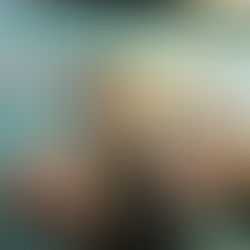The Hidden Injuries of Dreams [Giacomo Ecce, USA, 2017]
The notion that time has the power to change and heal is one that often emerges closely after a point of prior destruction, damage or pain, an idea that sits in direct opposition to the perhaps more skeptical perspective that history has a tendency to repeat itself. It is the paradox that exists firmly at the centre of The Hidden Injuries of Dreams, the reflective and poetic documentary from Giacomo Ecce.
This experimental short film looks at immigration in early 20th century America from the point of view of a daughter (Katherine McGavin) remembering her father. As the narrator of the documentary, she contemplates the meaning of hope and the invisible injuries experienced by the immigrants that dreamt of a better future in the 'land of opportunity'. The narration feels confessional and reconciliatory as she tries to make sense of the hypocritical attitudes of a country that embraced her father’s contribution to the war effort and industrial economy, only to reject him as an ‘outsider’ once the country began to settle into post-war complacency.

At one point, the stirring and primal free jazz of John Coltrane’s ‘Ascension’ thunders over images of mountain forests viewed from a moving train, and the foaming waves of the sea from a boat, whilst the narrator remembers happy moments shared between she and her father. The film consists of archive footage of the narrator’s father making his way through daily life against the backdrop of industrial workers, bustling streets and the modern machinery of wartime America. It is mixed in seamlessly with modern footage shot on scratchy 8mm film and giving the film a dreamlike, hazy and genuinely historical feel.
The Hidden Injuries of Dreams moves with a languid and elegiac poise, ending on an assured note of optimism and, with its fleeting running time, leaves you feeling as though having awoken from a vivid dream.

.png)




![SHORT FOCUS 2022: So What Did We Learn Today, Georgina? [Franco Volpi, UK, 2022]](https://static.wixstatic.com/media/9b7dde_f048f3b1e32c48918d83c1285916aa3c~mv2.png/v1/fill/w_220,h_123,fp_0.50_0.50,q_95,enc_auto/9b7dde_f048f3b1e32c48918d83c1285916aa3c~mv2.webp)

![Two Knights [Piotr Szkopiak, UK, 2022]](https://static.wixstatic.com/media/9b7dde_4b197f184db54afc95f775fe48320bd7~mv2.jpeg/v1/fill/w_220,h_123,fp_0.50_0.50,q_90,enc_auto/9b7dde_4b197f184db54afc95f775fe48320bd7~mv2.webp)
![SHORT FOCUS 2022: Throw Your Heart Over First [Mark McAuley, Ireland, 2021]](https://static.wixstatic.com/media/9b7dde_f17e64582f494d729a117bddc19545a9~mv2.png/v1/fill/w_220,h_123,fp_0.50_0.50,q_95,enc_auto/9b7dde_f17e64582f494d729a117bddc19545a9~mv2.webp)

![Borrowed Time [Ginevra Gentili, UK, 2022]](https://static.wixstatic.com/media/9b7dde_ed0c27adf0984653a11c5104f74a1b58~mv2.jpeg/v1/fill/w_220,h_123,fp_0.50_0.50,q_90,enc_auto/9b7dde_ed0c27adf0984653a11c5104f74a1b58~mv2.webp)

![SHORT FOCUS 2021: Cornflakes Are Rubbish [Charlotte Nind/Jacob Bacon, UK, 2021]](https://static.wixstatic.com/media/9b7dde_800e4f3cde6147399b1eee00f4337095~mv2.jpeg/v1/fill/w_220,h_123,fp_0.50_0.50,q_90,enc_auto/9b7dde_800e4f3cde6147399b1eee00f4337095~mv2.webp)

![SHORT FOCUS 2021: Original Sin [Paolo Sinigaglia, Italy, 2020]](https://static.wixstatic.com/media/9b7dde_ca789cc5313b4f94bf20f025dc4796ee~mv2.jpg/v1/fill/w_220,h_123,fp_0.50_0.50,q_90,enc_auto/9b7dde_ca789cc5313b4f94bf20f025dc4796ee~mv2.webp)

![SHORT FOCUS 2021: Shallow [Paul Ashton, UK, 2021]](https://static.wixstatic.com/media/9b7dde_951699be78e74888bc681fcd9d6c24cc~mv2.jpg/v1/fill/w_220,h_123,fp_0.50_0.50,q_90,enc_auto/9b7dde_951699be78e74888bc681fcd9d6c24cc~mv2.webp)

![SHORT FOCUS 2021: Bohemia [Samuel Kaperski, France, 2019]](https://static.wixstatic.com/media/9b7dde_d748c63a3c814cb99859c13d18c00d7d~mv2.jpg/v1/fill/w_220,h_123,fp_0.50_0.50,q_90,enc_auto/9b7dde_d748c63a3c814cb99859c13d18c00d7d~mv2.webp)


![SHORT FOCUS 2022: So What Did We Learn Today, Georgina? [Franco Volpi, UK, 2022]](https://static.wixstatic.com/media/9b7dde_f048f3b1e32c48918d83c1285916aa3c~mv2.png/v1/fill/w_51,h_39,fp_0.50_0.50,q_95,enc_auto/9b7dde_f048f3b1e32c48918d83c1285916aa3c~mv2.webp)

![In the Eyes of a Child [Marco Ferrara, Italy, 2023]](https://static.wixstatic.com/media/9b7dde_01e294bd769e4a8aa341551ca7bc7871~mv2.jpeg/v1/fill/w_51,h_39,fp_0.50_0.50,q_90,enc_auto/9b7dde_01e294bd769e4a8aa341551ca7bc7871~mv2.webp)
![Two Knights [Piotr Szkopiak, UK, 2022]](https://static.wixstatic.com/media/9b7dde_4b197f184db54afc95f775fe48320bd7~mv2.jpeg/v1/fill/w_51,h_39,fp_0.50_0.50,q_90,enc_auto/9b7dde_4b197f184db54afc95f775fe48320bd7~mv2.webp)
![SHORT FOCUS 2022: Throw Your Heart Over First [Mark McAuley, Ireland, 2021]](https://static.wixstatic.com/media/9b7dde_f17e64582f494d729a117bddc19545a9~mv2.png/v1/fill/w_51,h_39,fp_0.50_0.50,q_95,enc_auto/9b7dde_f17e64582f494d729a117bddc19545a9~mv2.webp)

![The Story of a Trout [Gareth Leah, USA, 2022]](https://static.wixstatic.com/media/9b7dde_044565b04f7b4b6da729f134c619e377~mv2.jpeg/v1/fill/w_51,h_39,fp_0.50_0.50,q_90,enc_auto/9b7dde_044565b04f7b4b6da729f134c619e377~mv2.webp)

![My Name is Moe [Kabir McNeely, USA, 2022]](https://static.wixstatic.com/media/9b7dde_680ffd6c85f642a6844b8785364c4288~mv2.jpg/v1/fill/w_51,h_39,fp_0.50_0.50,q_90,enc_auto/9b7dde_680ffd6c85f642a6844b8785364c4288~mv2.webp)
![Borrowed Time [Ginevra Gentili, UK, 2022]](https://static.wixstatic.com/media/9b7dde_ed0c27adf0984653a11c5104f74a1b58~mv2.jpeg/v1/fill/w_51,h_39,fp_0.50_0.50,q_90,enc_auto/9b7dde_ed0c27adf0984653a11c5104f74a1b58~mv2.webp)
![SHORT FOCUS 2021: Cornflakes Are Rubbish [Charlotte Nind/Jacob Bacon, UK, 2021]](https://static.wixstatic.com/media/9b7dde_800e4f3cde6147399b1eee00f4337095~mv2.jpeg/v1/fill/w_51,h_39,fp_0.50_0.50,q_90,enc_auto/9b7dde_800e4f3cde6147399b1eee00f4337095~mv2.webp)

![The Skin She Sheds [Cass Virdee, UK, 2022]](https://static.wixstatic.com/media/9b7dde_bddd09258c164b9a90431ffd228c378a~mv2.jpeg/v1/fill/w_51,h_39,fp_0.50_0.50,q_90,enc_auto/9b7dde_bddd09258c164b9a90431ffd228c378a~mv2.webp)
![SHORT FOCUS 2021: Original Sin [Paolo Sinigaglia, Italy, 2020]](https://static.wixstatic.com/media/9b7dde_ca789cc5313b4f94bf20f025dc4796ee~mv2.jpg/v1/fill/w_51,h_39,fp_0.50_0.50,q_90,enc_auto/9b7dde_ca789cc5313b4f94bf20f025dc4796ee~mv2.webp)
![SHORT FOCUS 2021: Shallow [Paul Ashton, UK, 2021]](https://static.wixstatic.com/media/9b7dde_951699be78e74888bc681fcd9d6c24cc~mv2.jpg/v1/fill/w_51,h_39,fp_0.50_0.50,q_90,enc_auto/9b7dde_951699be78e74888bc681fcd9d6c24cc~mv2.webp)
![SHORT FOCUS 2021: Bohemia [Samuel Kaperski, France, 2019]](https://static.wixstatic.com/media/9b7dde_d748c63a3c814cb99859c13d18c00d7d~mv2.jpg/v1/fill/w_51,h_39,fp_0.50_0.50,q_90,enc_auto/9b7dde_d748c63a3c814cb99859c13d18c00d7d~mv2.webp)

![SHORT FOCUS 2021: Yuluu [Fatima Kried, UK, 2021]](https://static.wixstatic.com/media/9b7dde_eb393025c61143cf98b6e551df4adf77~mv2.jpg/v1/fill/w_51,h_39,fp_0.50_0.50,q_90,enc_auto/9b7dde_eb393025c61143cf98b6e551df4adf77~mv2.webp)